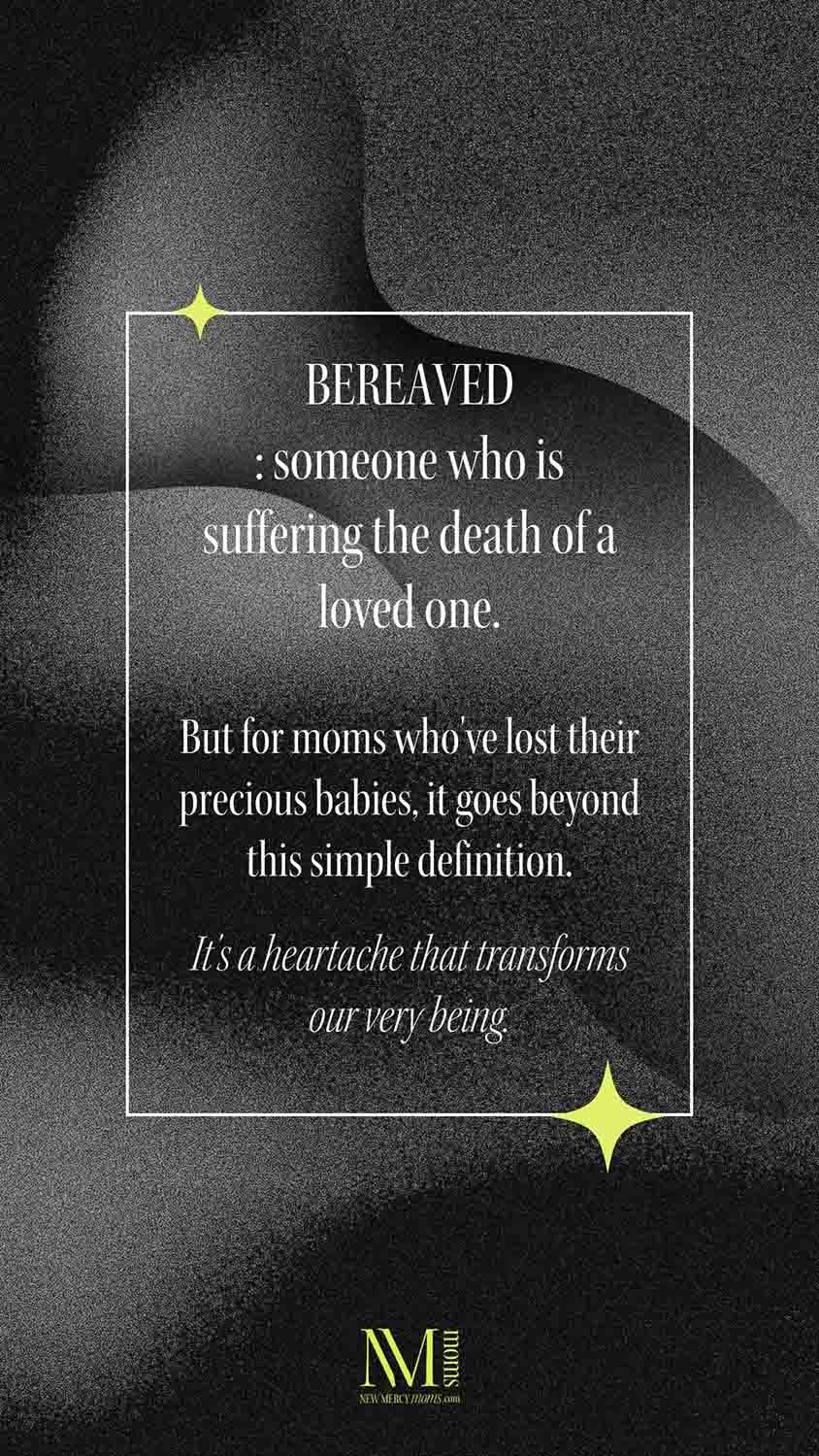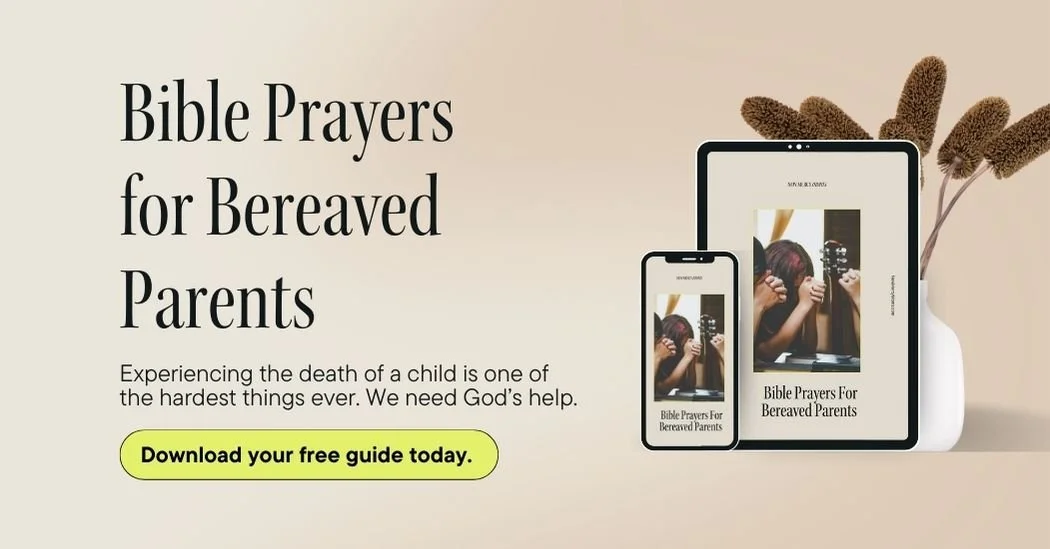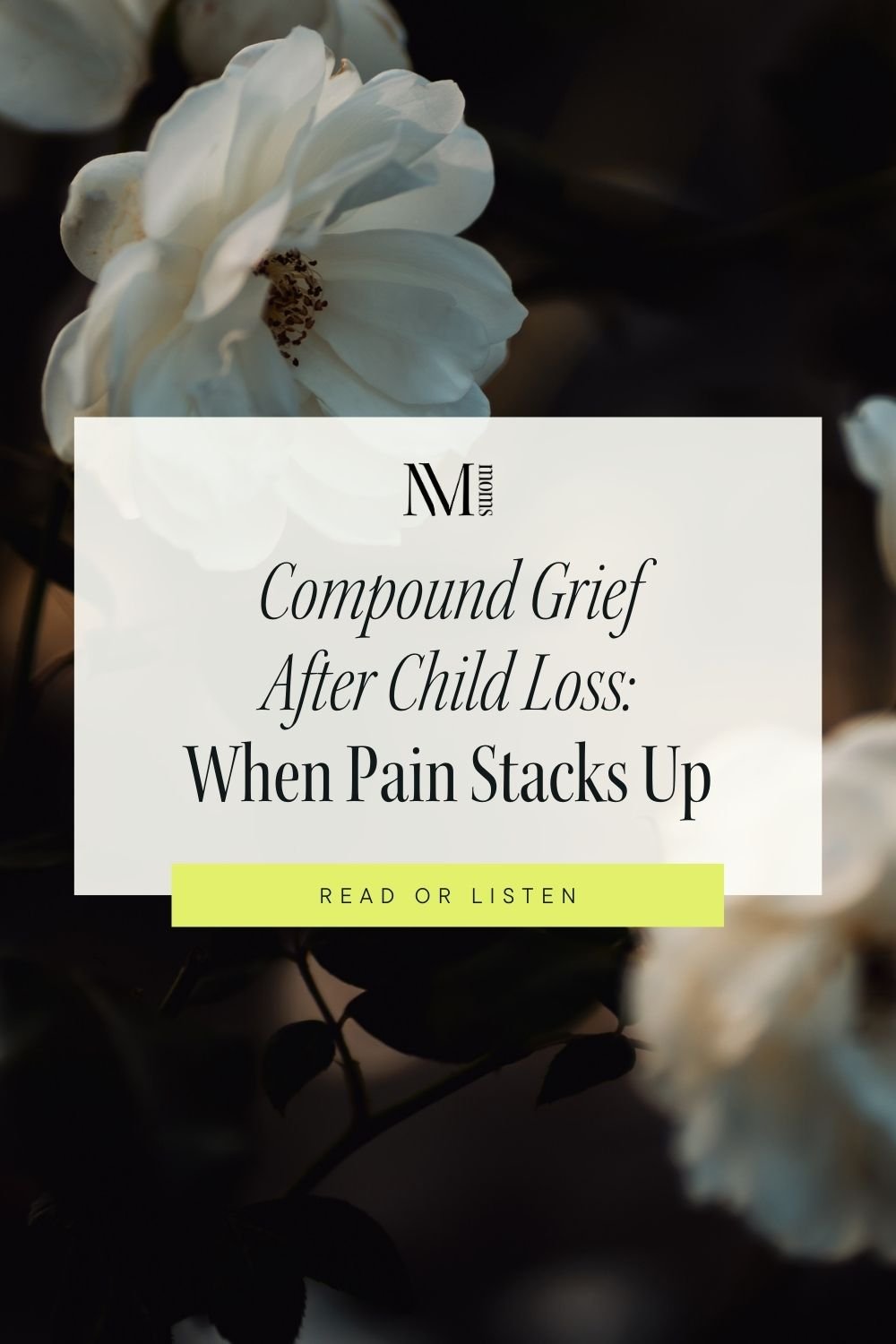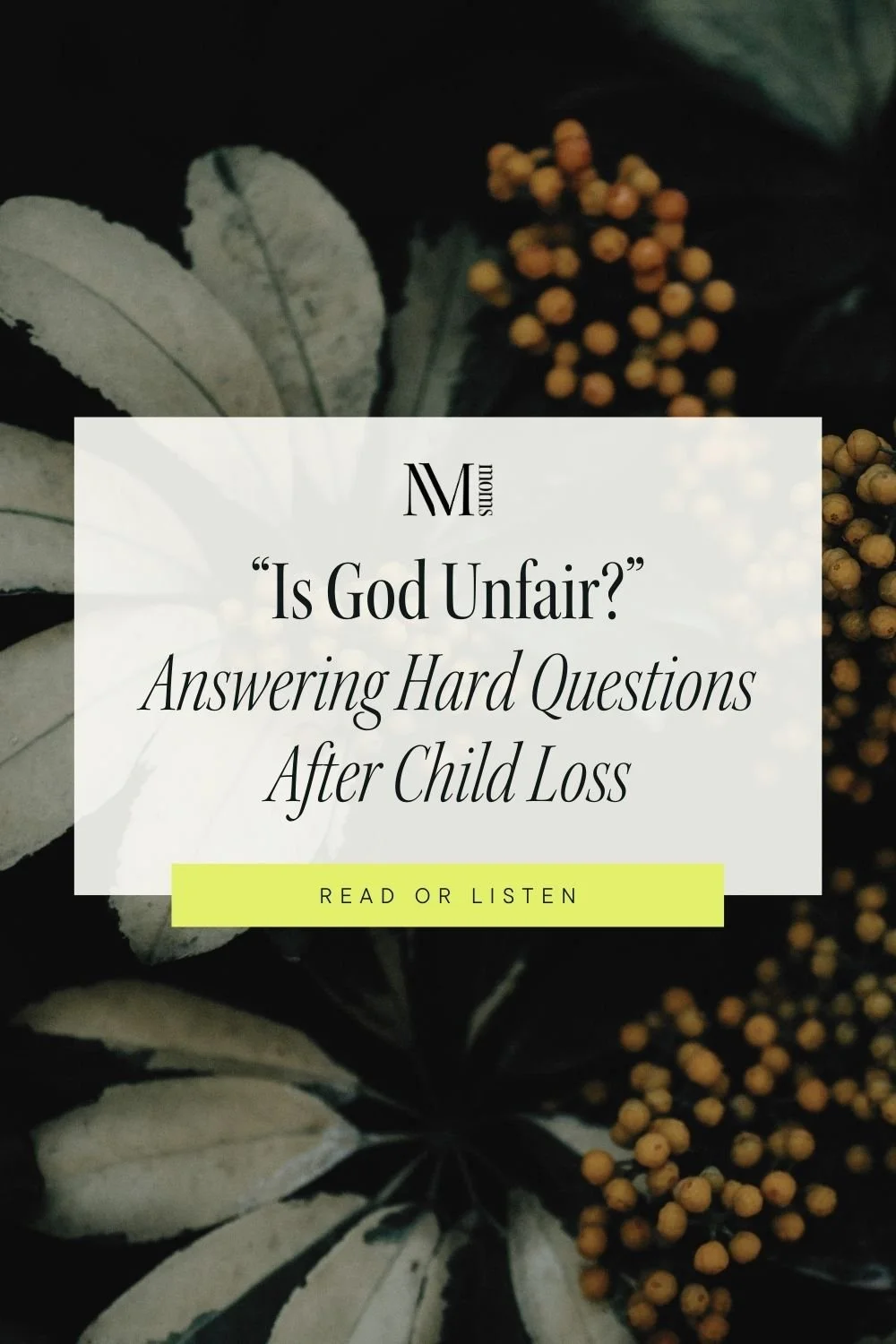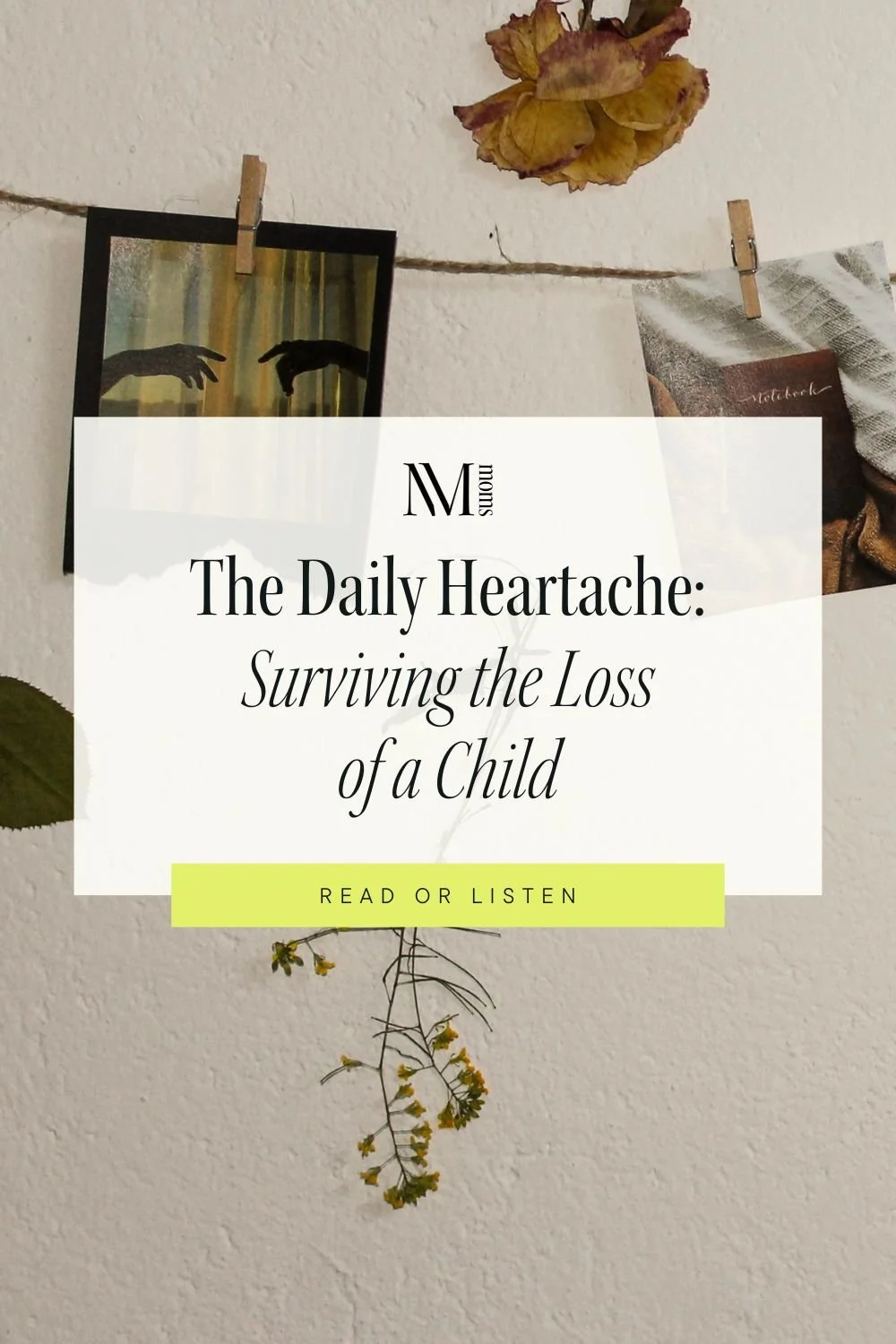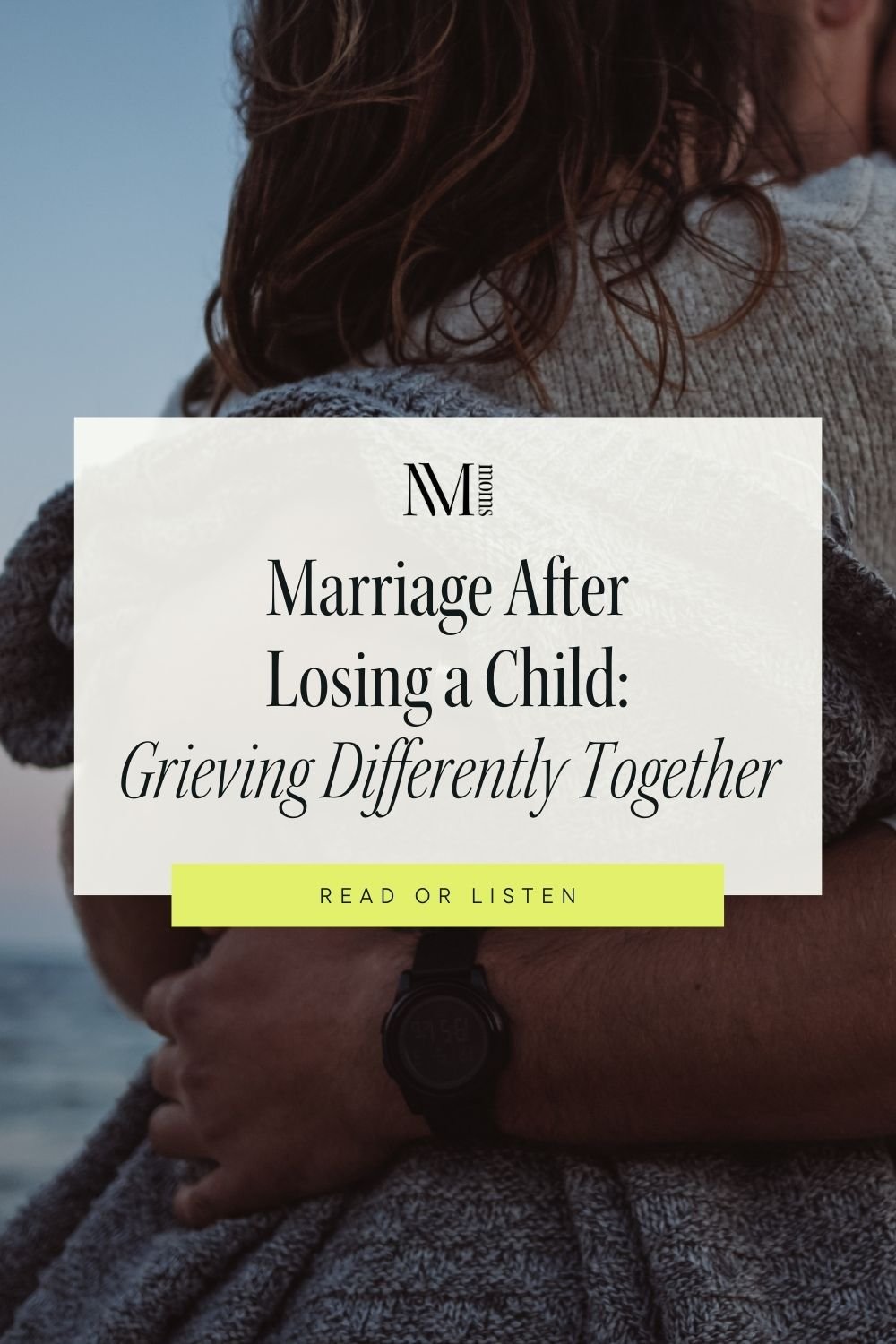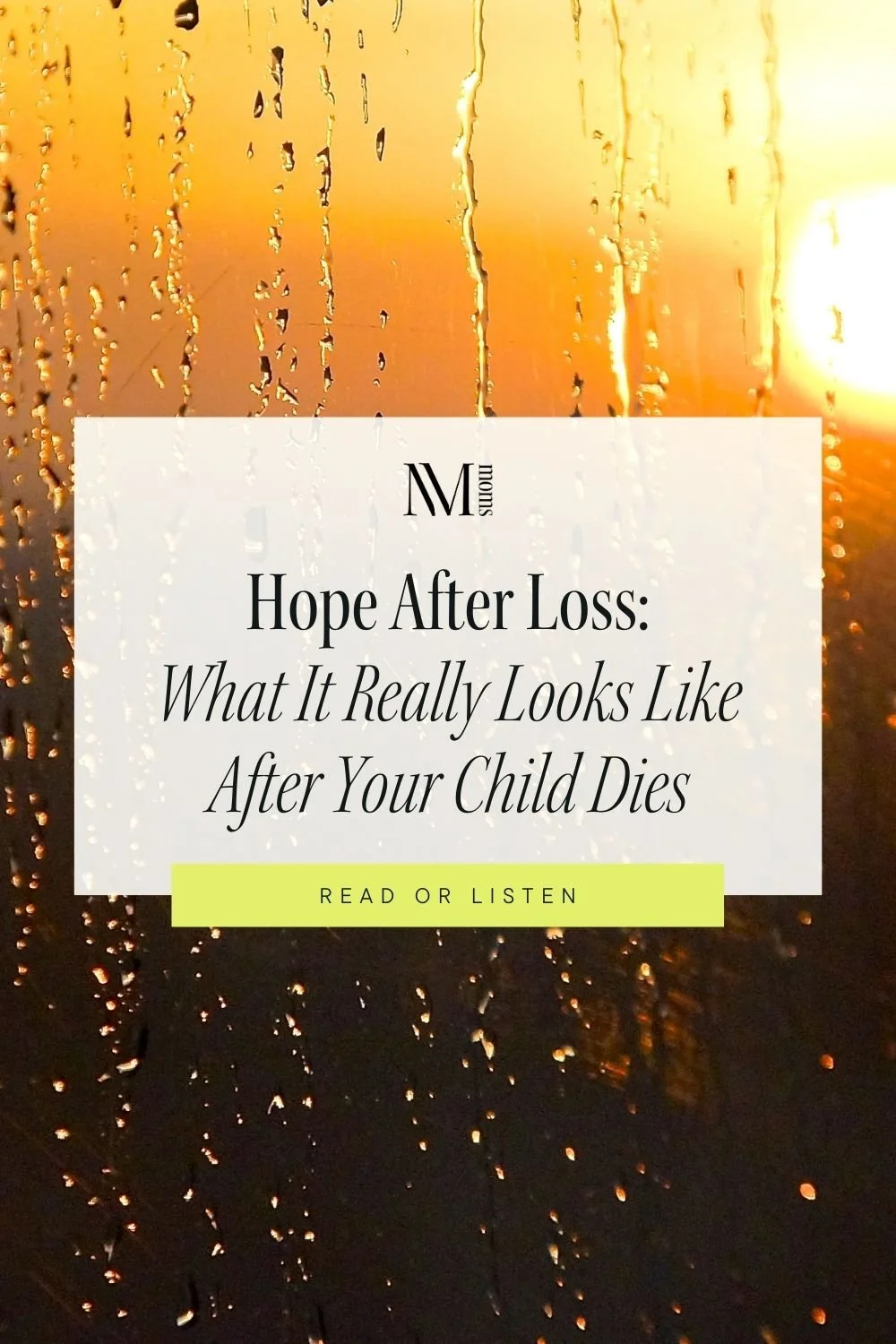Bereaved Meaning: Understanding the Grief of Bereaved Moms
Table of Contents Show
When we dive into the word 'bereaved,' there's a whole depth of emotion and experience behind it that many don’t grasp. As a mom who's felt the piercing pain of losing my firstborn, and as someone who’s been found by Jesus on my darkest days, I wanted to share my understanding of the 'bereaved meaning' with you. Not just as a dictionary term, but as a lived reality.
Whether you’ve lost a little one or want to support someone who has, I pray that these words bring you clarity and comfort.
Bereaved Meaning: Technical Definition
Let's start with the basics. According to Merriam-Webster.com, the term 'bereaved' technically refers to someone who is suffering the death of a loved one. And that makes sense.
But for moms who've lost their precious babies, it goes beyond this simple definition. It's a heartache that transforms our very being.
How Being Bereaved Affects a Mom's Life and That of Her Family
Life after loss isn’t the same. When a part of your heart is suddenly absent, everything changes.
Unpacking the 'bereaved meaning' isn't just about understanding a term; it's about grasping the profound impact it has on a mom's entire world. And for those of us who've walked through it, we know that life after loss takes on a different shade.
When a mother loses her baby, it's not just a singular event that happens and then gets left behind. It’s a continuous journey, and each day brings its own set of challenges and emotions. It's like waking up to a new world where every familiar corner now holds a different memory or significance.
Your routines, once filled with anticipation and joy, can now feel heavy. Simple tasks, like going to the grocery store or picking up the phone to chat, might seem monumental. You might find yourself breaking down over the smallest triggers, like seeing a baby's toy or hearing a lullaby. That’s the weight of the 'bereaved meaning'; it's not just a word but a lived experience that affects every facet of daily life.
For the family, it can be a time of walking on eggshells. They might be scared of saying something that might upset you or unsure of how to offer comfort. Your partner, if you have one, might be grappling with their own grief while trying to be a pillar of strength for you. Siblings, even if they are very young, can sense the change in the home atmosphere. They might not fully understand what has happened, but they feel the shift in energy and emotion.
It's important to remember that everyone grieves differently. For some, diving back into work or daily tasks can be a coping mechanism. For others, taking a step back and allowing themselves to fully process the grief is necessary. There’s no right or wrong way, and understanding the meaning of bereaved is understanding that this journey is deeply personal.
But amidst this sea of change, there's also an undercurrent of love and connection. The bond that a mother has with her lost baby never fades. It’s an everlasting love that remains, reminding us of the depth of our emotions and our capacity to cherish and remember.
Being bereaved changes the fabric of a family. It introduces a profound depth of understanding, compassion, and resilience. While the journey is undeniably challenging, it's also a testament to the strength of a mother's heart and the unwavering support of those who stand by her side.
Short-Term Effects
Mentally: When we talk about the 'bereaved meaning' and its impact, it's not just about sadness. It's about the mental exhaustion that can come from navigating everyday life. Simple decisions like what to eat, or even getting out of bed, can suddenly feel like monumental challenges. It’s not uncommon for mothers to feel disoriented or even forgetful during this period. I know that was my story.
Physically: In the immediate aftermath, the physical effects of grief can be surprisingly profound. Not only are you experiencing postpartum (which lasts beyond the first 6 weeks), but there’s a strange paradigm of grief you’re processing through. Your body might react in ways you wouldn’t expect, with symptoms like an upset stomach, headaches, or even random pains. Moreover, the loss of appetite or, conversely, seeking comfort in food can also be ways the body responds.
Emotionally: Bereavement has a way of amplifying emotions. A song, a scent, or even a familiar setting can invoke powerful feelings. While there might be moments of unexpected calm, there can also be sudden bursts of sorrow or frustration, even from the most trivial triggers. For me, even using the same chapstick that I used during pregnancy triggered me to grieve at seemingly random times.
Relationally: Navigating relationships during grief is a delicate dance. It’s natural for there to be misunderstandings. Some friends or family may want to help but aren't sure how, which can sometimes lead to them saying the wrong thing or, out of fear, saying nothing at all. On the other hand, there might be people who step up in ways you never expected, providing invaluable support.
Long-Term Effects
Mentally: As time progresses, the 'bereaved meaning' evolves. The overwhelming cloud of grief might not be as constant, but it doesn't entirely disappear. Certain dates, events, or even casual mentions can bring back memories, causing mental and emotional fatigue that may feel all too familiar. And for me, those memories aren’t unwanted. I want to keep my memories of my baby, no matter how difficult. But, boy oh boy, they are very heavy to hold onto.
Physically: The long-term physical effects of grief shouldn’t be underestimated. Chronic fatigue, changes in weight, or even compromised immunity can be the body’s continuous response to the loss. It’s important for moms to monitor their health and seek medical advice if necessary.
Emotionally: Even as the years go by, there will be times when emotions come rushing back. It could be your child's projected graduation date, the sight of another child who would be their age, or even a quiet moment of reflection. The depth of the 'bereaved meaning' becomes apparent in these moments.
Relationally: Grief has a way of reshaping your social landscape. Some relationships might strengthen as they're tested by the trials of loss, while others may naturally drift apart. It's a journey of discovering who can truly empathize and stand with you in the long haul.
Being Bereaved Means You Should Find Support
Dearest moms, If there's one thing I've come to deeply understand through my own journey, it's that the term ‘bereaved meaning’ doesn’t just indicate a loss. It speaks to a shared experience, a connection among those of us who have known profound grief. And while each of our stories may be unique, one truth remains consistent: the importance of seeking and receiving support.
You see, bereavement isn't just a season; for many of us, it's a lifelong journey. Days will come when you feel strong, followed by moments where you feel like you're crumbling. And during those fragile times, it's the support around us that helps keep us grounded.
I urge you, from the depths of my heart, not to shy away from reaching out. It's perfectly okay, and incredibly brave, to say, "I need help" or "Can we talk?" The 'bereaved meaning' carries within it a silent plea for understanding and companionship. That’s why support groups, close friends, dedicated pastors, or professional counselors can be invaluable. They provide safe spaces to express your feelings, ask questions, or even just sit in silent understanding.
And remember, it’s not about finding someone with all the answers. Sometimes, it’s just about having someone next to you, acknowledging your pain, and journeying with you. God, in His infinite wisdom and grace, often works through the people around us. In moments of despair, He reminds us of His love and presence through the comfort and understanding of others.
I understand that some days you might feel like you're burdened or bothering others with your grief. But believe me when I say that your feelings are valid, your grief is acknowledged, and your need for support is crucial. Being bereaved is as much about community as it is about personal sorrow.
So, whether it’s been days, months, or years since your loss, know that it's never too late to seek support. The path of bereavement is undeniably hard, but with the right people around you, it becomes a journey of healing, understanding, and love.
Why It's Okay to Never Be the Same After Losing a Baby
Your baby was a unique, beautiful life, and their life no matter how short was special. Their life mattered, and that’s why it’s okay to not be the same after they’re gone. You’re not expected to "move on" or "get over it." Jesus, in His loving compassion, understands our tears and holds our broken hearts.
When we talk about the 'bereaved meaning', it often feels like a dictionary definition, devoid of the profound emotional journey that such a word encompasses. But for many of us, especially moms who've experienced this loss, bereavement goes much deeper. It resonates with an alteration of our very essence, our heart's rhythm, and the way we view the world around us. Each of us, in our unique way, feels the weight of that word.
We often live in a world that hastens healing. There's this unspoken assumption that with time, everything returns to normal. But the truth is, what is "normal" anyway after such a profound loss? Every mother’s relationship with her child is singular, special. So, it's entirely natural that the grief and transformation we undergo are just as individual.
Mourning is not a linear process. Some days might be better, while others feel like you're back at square one. And guess what? That's okay. Grieving is not a sign of weakness; it's a testament to love. The depth of your grief mirrors the depth of your love for your child. Embracing this new version of yourself doesn't mean you're dwelling on the pain; it means you're honoring your child's memory and the indelible mark they left on your heart.
The 'bereaved meaning' also reminds us that we are part of a community. While everyone's journey is distinct, know that you aren't walking this path alone. Jesus, who wept at the death of His friend Lazarus, understands the depths of our sorrows. Just as He comforts us, we can lean on each other, share our stories, and find solace in the fact that we are understood, loved, and never alone.
Your journey, your feelings, your unique way of grieving — all are valid. It's okay to be changed. It's okay to feel. And through all the highs and lows, remember: your love, your memories, and the essence of your baby will always be a part of you.
How to Help Someone Who Is Bereaved
Being bereaved envelops more than just the pain of loss; it represents an entire journey, one that is deeply personal and often incredibly isolating. When someone we know is navigating this difficult path, the question we often find ourselves asking is, "How can I help?" And though every grieving heart is unique, there are some universal ways we can extend our support:
Listen Actively
One of the simplest yet most profound things you can do is just listen. Sometimes, the person grieving doesn’t need solutions or advice; they just need someone to hear them out, to be a witness to their pain. Be present in the moment, avoid interrupting, and offer your undivided attention.
Acknowledge Their Feelings
Understanding the depth of the 'bereaved meaning' can be challenging, especially if you haven’t experienced such loss firsthand. However, it's important to recognize that you don't always need the right words. Simply saying, "I’m here for you," or "I can’t imagine how you’re feeling, but I want to support you in any way I can," can provide immense comfort.
Pray with Compassion
Prayer is a powerful tool. When words fail, lifting up the bereaved in prayer can offer solace. If the person grieving feels comfortable, pray with them. Let them know that you're consistently remembering them in your conversations with God.
Offer Practical Help
Sometimes, day-to-day tasks can become overwhelming for someone grappling with grief. Can you help with grocery shopping? Maybe cook a meal for them? Or perhaps just sit with them for a while, ensuring they aren't alone. These actions, though they may seem small, can make a substantial difference in the daily life of someone who is grieving.
Remember and Recognize Special Days
Bereavement often deepens during anniversaries, birthdays, or other notable dates. These days can reignite the pain and make the person feel as if they're reliving their loss. Please reach out during these times. A message, a call, or even a heartfelt note can remind them that they're not alone in their remembrance.
Helping someone who is bereaved doesn't always require grand gestures. Often, it's the small, consistent acts of kindness and understanding that mean the most. As you offer your support, remember that your loving presence, patience, and the genuine desire to help can be the balm they need during their time of sorrow.
Summary
In delving into the profound depth of the 'bereaved meaning', we're reminded that it's more than just a term in the dictionary; it's a deeply personal and transformative journey, especially for mothers who've endured the pain of losing a child. From the immediate effects on a mother's mental, physical, and emotional state to the reshaping of relationships and the importance of seeking support, the journey of bereavement is multifaceted. It changes not just the individual, but also the fabric of families and communities.
The term 'bereaved meaning' thus stands as a beacon of shared experience, love, strength, and, ultimately, healing. Whether you're on this journey or supporting someone who is, let's remember to approach with compassion, patience, and love, offering a hand or simply a listening ear. The transformative power of understanding and companionship is, after all, what makes the journey a little more bearable.
Soli Deo Gloria,
Kathy
What do you think?
Please share in the comments below, I’d love to hear!
If you found this helpful, please share!
As a mom who’s suffered the loss of my baby, I know deep heart pain.
I tried to run from God, but he convinced me of his love and comforted my heart with hope and healing in Jesus.
Now, it’s my mission to share this same comfort with others who’ve experienced the pain of miscarriage and infant loss.


